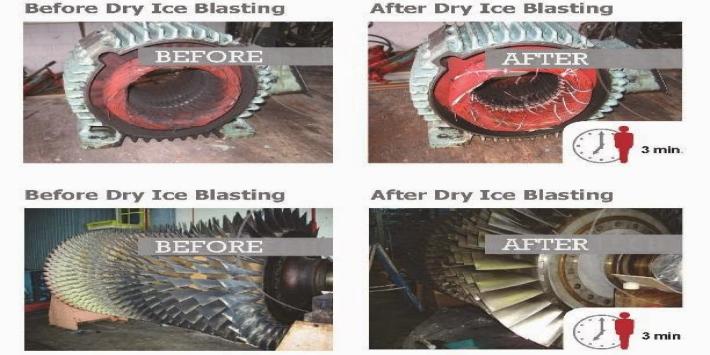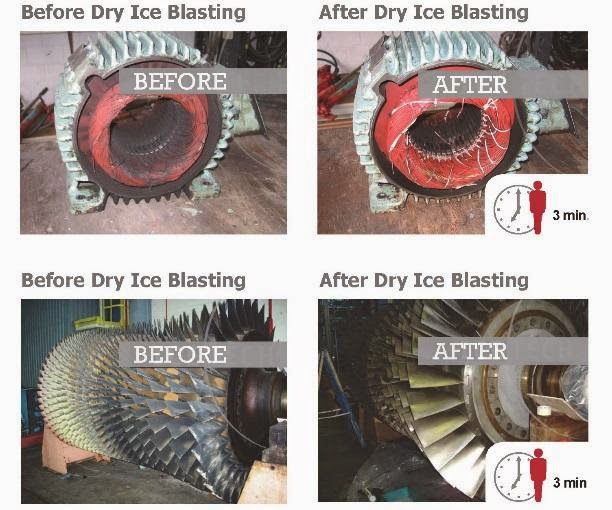A Slow-Motion Look at Dry Ice Blast Cleaning
BLOG

Slow-motion videography has given us fascinating insights into what actually happens during split-second events. A bullet tearing through an apple, for example, is mesmerizing when watched frame-by-frame. Dry ice blast cleaning is another process that reveals interesting secrets when slowed down dramatically. Here are a few of those secrets, and how they translate into real-world benefits.It’s Not “Real” IceFirst of all, dry ice blasting doesn’t use frozen water, which is what we normally think of as ice. It uses carbon dioxide, which freezes as a solid at temperatures lower than -109° Fahrenheit. An interesting property of carbon dioxide is that, instead of melting into a liquid at room temperature, it sublimates directly into a gas. That makes dry ice very useful for high-pressure cleaning.Here’s What HappensImagine a single dry ice pellet striking a surface caked with hardened debris. As the pellet contacts the surface, it doesn’t physically “knock” the debris off; instead, it rapidly transforms from a solid into a gas. That transformation releases a large amount of energy in the form of heat and a shock wave. The underlying surface suffers no damage, but the debris is weakened by the shock. Multiply this effect by millions of pellets, and the result is a thorough cleaning job that doesn’t damage the equipment being cleaned.No ResidueAfter the dry ice blasting is complete, there is no physical residue as with sand blasting, and there is no moisture left to damage electrical components, as with hydroblasting. The lack of residue or moisture is a big part of why dry ice is a great choice for situations that involve sensitive equipment.
We welcome the opportunity to tell you more about our dry ice and numerous other industrial cleaning techniques. Call or email to tell us about your needs!

Press Contact
- Emily Martin
- Marketing Manager
- 100 N. Main Street
- Sumter, SC 29150
- (803) 773-8005
- emartin@thompsonind.com
